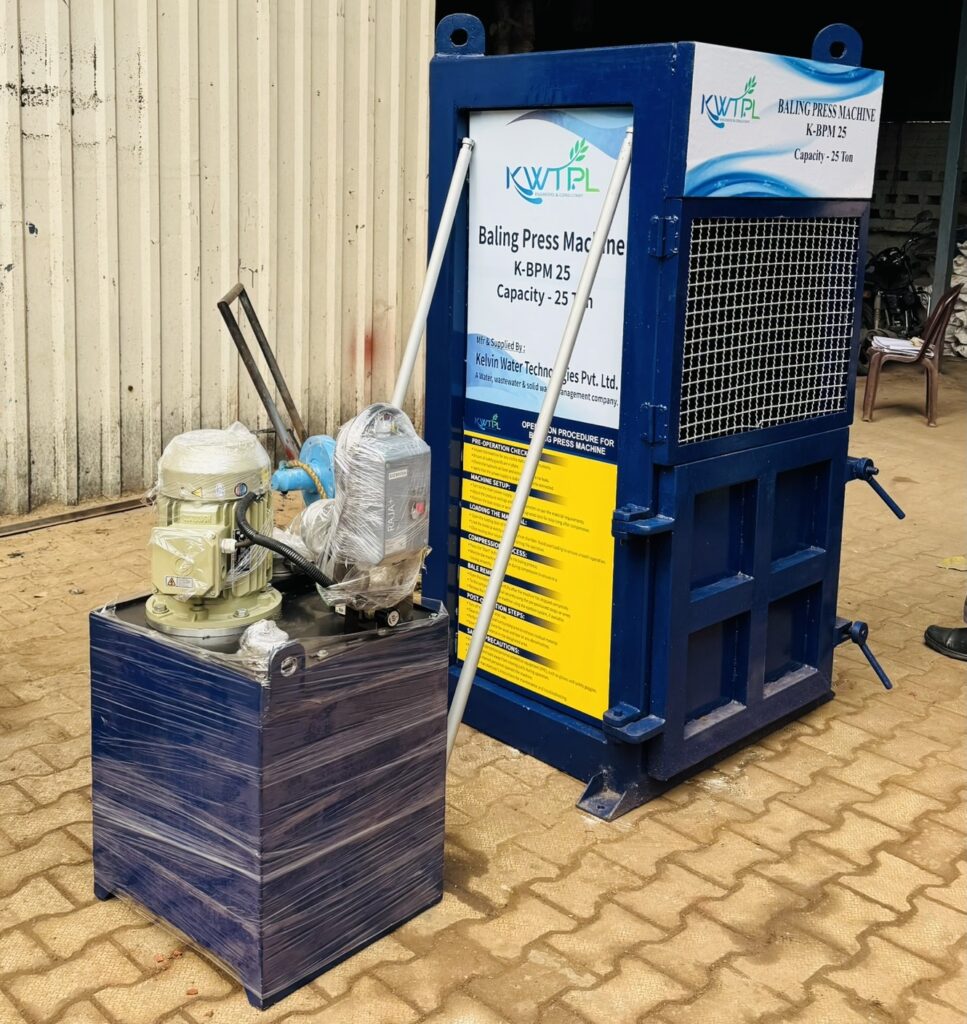Baling Press Machine: How to Choose the Right Baling Machine for Your Metal Recycling Business

What is Baling Press Machine?
A baling press machine is used to compact various types of scrap metal into uniform bales, reducing the volume and making them easier to handle. These machines are widely used in recycling centres, manufacturing units, and metal processing facilities. The types of scrap metal that can be baled include aluminium, steel, copper, and other non-ferrous materials.
Types of Baling Press Machine
Baling machines come in various types, each suited for specific recycling needs. Understanding the different options is essential to make the right choice:
a. Vertical Balers
- Designed for small to medium-scale operations.
- Compact and suitable for facilities with limited space.
- Ideal for handling light to medium scrap metal.
b. Horizontal Balers
- Suitable for large-scale operations.
- Designed for continuous feeding and higher output.
- Efficient for processing bulky and heavy scrap metal.
c. Single-Ram Balers
- Utilizes one hydraulic ram for compression.
- Best suited for less complex recycling needs.
- Cost-effective for smaller operations.
d. Two-Ram Balers
- Features two hydraulic rams for greater compression power and flexibility.
- Ideal for processing diverse materials and high-volume operations.
e. Automatic Balers
- Fully automated operation minimizes labour requirements.
- High efficiency and throughput for large recycling facilities.
Factors to Consider When Choosing a Baling Press Machine
a. Type and Volume of Scrap Metal
Evaluate the type of metal you process most frequently and the volume your business handles daily. For example, aluminium cans may require a different baler than heavy steel scrap. Machines with higher compression force are better suited for denser materials.
b. Capacity and Throughput
Consider the baler’s capacity and how much material it can process in a given time. High-capacity balers are essential for businesses with large-scale operations, while smaller facilities may opt for a machine with moderate throughput.
c. Space Availability
Evaluate the space available in your facility. Vertical balers are compact and suitable for limited spaces, while horizontal balers require more room but offer higher productivity.
d. Automation Level
Determine the level of automation your business requires. Fully automatic balers are more efficient and require minimal human intervention, but they come with a higher upfront cost. Semi-automatic or manual balers may be sufficient for smaller operations.
e. Energy Efficiency
Energy consumption is a critical consideration for reducing operational costs. Choose energy-efficient machines that minimize electricity usage while maintaining high performance, ensuring optimal productivity without unnecessary energy expenses.
f. Durability and Maintenance
Invest in a machine built with high-quality materials and components. Durable balers reduce downtime and maintenance costs, ensuring smooth operations. Additionally, check the availability of spare parts and after-sales support.
g. Safety Features
Prioritize machines with advanced safety features, such as emergency stop buttons, safety locks, and overload protection. These features protect operators and ensure compliance with workplace safety regulations.
Benefits of Using Baling Press Machine
Selecting the appropriate baler offers numerous advantages, including:
- Cost Savings: Efficient balers reduce labour, transportation, and storage costs.
- Increased Productivity: High-capacity machines improve throughput and operational efficiency.
- Environmental Compliance: Proper waste management aligns with environmental standards and reduces carbon footprints.
- Better Material Handling: Compressed bales are easier to store and transport, improving logistics.
Popular Features to Look For
When evaluating baling press machines, consider features that enhance performance and usability:
- Programmable Controls: Machines with programmable logic controllers (PLCs) offer greater precision and customization.
- Hydraulic Systems: High-performance hydraulic systems provide consistent compression force.
- Automatic Tying Systems: These systems speed up the baling process and ensure secure bales.
- Robust Construction: Sturdy frames and wear-resistant components extend the machine’s lifespan.
Cost Considerations
The price of a baling press machine is influenced by factors such as its size, type, level of automation, and brand. While choosing the least expensive option might seem appealing, it’s essential to weigh the long-term advantages of investing in a high-quality machine. Lower-cost models often come with increased maintenance expenses and reduced durability, which can outweigh any initial savings.
Supplier Reputation and Support
Choose a reputable supplier with a proven track record in the recycling industry. Reliable suppliers offer quality products, comprehensive warranties, and excellent customer service. Additionally, ensure they provide training for operators and ongoing technical support.
Customization Options
Some manufacturers offer customized baling press machines tailored to your specific requirements. Customization options may include:
- Adjusted bale sizes.
- Enhanced automation features.
- Specific material handling capabilities.
Environmental Impact
Sustainability is a growing concern in the recycling industry. Look for machines designed to minimize energy consumption and reduce waste. Eco-friendly balers not only support your business’s green initiatives but also enhance your reputation among environmentally conscious clients.
Future-Proofing Your Investment
Consider your business’s growth potential when selecting a baler. Investing in a machine with higher capacity and advanced features ensures scalability and reduces the need for upgrades soon.
Conclusion
Choosing the right baling press machine is a vital decision for any metal recycling business. By assessing your specific needs, understanding the available options, and considering factors like capacity, automation, and energy efficiency, you can select a machine that boosts productivity, reduces costs, and aligns with your long-term goals. Partnering with a reputable supplier ensures access to high-quality equipment and reliable support, further solidifying your investment.
Take the time to evaluate your options thoroughly and invest in a baling press machine that will drive the success of your metal recycling operations for years to come.